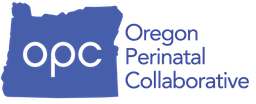
Participate in a Survey of Peripartum Toxicology
Testing Practices Across the United States
Researchers affiliated with Massachusetts General Hospital are conducting a survey about toxicology testing practices during pregnancy at birthing hospitals across the United States. The team is reaching out to Perinatal Quality Collaboratives across the country to learn more about practices for ordering and obtaining consent for toxicology testing during pregnancy. The survey is web-based and should be completed by individuals familiar with their hospital’s toxicology testing practices, including OB/GYN and pediatric physicians or fellows, certified nurse midwives (CNM), perinatal social workers, as well as L&D nursing managers. The survey takes approximately 20 minutes to complete and respondents will be entered into a raffle to win AirPods. You can access the survey here.
TeamBirth: Process Innovation for Clinical Safety,
Effective Communication and Dignity in Childbirth
The National Network of Perinatal Quality Collaboratives (NNPQC) hosted a presentation on June 28, 2023, about the TeamBirth model. TeamBirth is a care process innovation involving a series of team huddles between the patient and their care team, designed to empower each team member to contribute information, reliably structure communication and help the team arrive at shared plans together.
See below for resources from the presentation and reach out to the TeamBirth team with questions about the presentation.
Webinar Slides | View Slides
Webinar Recording | Watch Video
Home Visits: A Vital Perinatal Support
Evidence-based maternal and child health home visiting programs have been effective in supporting early childhood development and positive perinatal outcomes. These programs provide support to disenfranchised populations by increasing skill building, access to care and family engagement. Home visits can also offer frontline help to people experiencing postpartum depression or mental health crisis. Integration of home visiting programs with both clinical perinatal provider models and managed care models is challenging but offers opportunities to improve health outcomes.
Investments from stakeholders on every level can play a vital role in supporting the integration of home visiting programs through dissemination, implementation and training. Stakeholders should also come together to identify barriers and solutions for effective data sharing across state programs. Exploring the use of transportation and childcare benefits for group health support alongside individual home visiting can strengthen peer and community health assets and promote the sustainability of effective programs.
Key strategies include building relationships with community-based organizations to inform integration and payment models, as well as using regional hubs to limit burden on providers and decrease costs. It is crucial to involve communities and participants in program design and to solicit feedback on ongoing program design. Oregon’s expansion of Medicaid coverage through 12 months postpartum provides additional support and was one of CMS’ recommendations. Continued efforts to remove barriers for behavioral health providers is an essential step toward providing sustained support and moving the needle on perinatal care, especially in relation to postpartum mental health care.
References: Innovation in Perinatal and Child Health in Medicaid
Learn more about different programs using the home visiting model:
- UW-Madison Prevention Research Center: Addressing Postpartum Depression in Wisconsin Home Visiting Programs
- Maternal Mental Health Now
- California Medi-Cal Partnership



